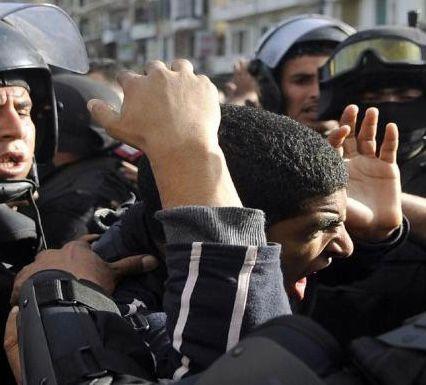
Alkarama recently submitted a list of 22 issues to the UN Committee against Torture for its experts to raise with the Egyptian authorities for the next consideration of Egypt's sixth periodic report.
Composed of ten independent experts, the UN Committee against Torture is responsible for monitoring the implementation of the Convention against Torture and Other Cruel, Inhuman or Degrading Treatment or Punishment by its States parties.
The list of issues, prepared as part of the contribution of non-governmental organizations to the review, is intended to facilitate the preparation of a constructive dialogue with the State party.
Through its list of issues, Alkarama drew the Committee's attention to the deterioration of the human rights situation in Egypt since its last review in 2002 and expressed its main concerns.
Increasing restrictions on human rights and fundamental freedoms
The human rights situation in Egypt, which was already a source of great concern since its last periodic review by the Committee against Torture (CAT) in 2002, has further deteriorated over the years and in particular since the military coup of General Abdel Fattah al-Sisi on 3 July 2013.
In its list of issues, Alkarama noted that despite al-Sisi's claims about the country's willingness to end past practices and build the rule of law, human rights violations have only increased and become more systematic. Numerous laws restricting fundamental freedoms have been enacted and Egypt has continued to attack fundamental freedoms, generating a serious human rights situation highlighted by international NGOs and various United Nations (UN) human rights mechanisms.
Thus, Alkarama invited the Committee to question the State Party on legislative texts that pave the way for restrictions and violations of fundamental rights, including, inter alia, Law No. 107 of 2013 on the "Organization of the right of public assembly, processions and peaceful demonstrations in public places".
The blatant impunity of the Egyptian authorities
Over the years, Alkarama has continued to receive and document to UN mechanisms numerous cases of torture, ill-treatment, secret detentions, enforced disappearances and other systematic abuses and violations of fundamental rights and in particular the right to life, the right to a fair trial, the right to freedom of expression and the right to freedom of peaceful assembly.
These abuses, which contrast with the authorities' renewed commitments to the protection and promotion of human rights, have been perpetrated by various components of Egypt's security apparatus. As a result, the Egyptian authorities continued to violate their international obligations and create a climate of widespread impunity for perpetrators of serious violations, in particular with regard to torture, which remains widely and systematically used against all persons suspected of alleged terrorist crimes, but also against peaceful political opponents, women and children. Today, the repression extends to all individuals who oppose the government's policy.
Alkarama called on the Committee to inquire about torture during incommunicado detention or periods of enforced disappearance, also suggesting that UN experts question the State party if it ensures that all allegations of torture are promptly, impartially and independently investigated, and that all perpetrators are brought to justice.
Alkarama also called on the Committee to inquire about the lack of independence of the Public Prosecutor's Office from the executive, since it is one of the causes of the impunity prevailing in the country. Alkarama suggested that the Committee ask Egypt whether it intends to adopt measures to guarantee the independence of the Public Prosecutor's Office and establish an independent mechanism to receive complaints of torture so that thorough and transparent investigations can be carried out.
Serious and systematic violations of fundamental rights and freedoms are a reality that Egypt is still trying to justify under the pretext of "combating terrorism". The massive human rights violations have been justified by the state's goal of eradicating terrorism. Egypt was pursuing its repressive policy by all means and without taking into account international human rights law. By totally muzzling its civil society, it denies citizens the opportunity to peacefully challenge this policy.
Alkarama encouraged the Committee to inquire about the anti-terrorism law in order to ascertain whether Egypt is considering amending the definition of "terrorism" in order to bring it into line with international human rights standards.
Egypt should provide written replies to the list of issues to be adopted by the Committee against Torture for its next review.
